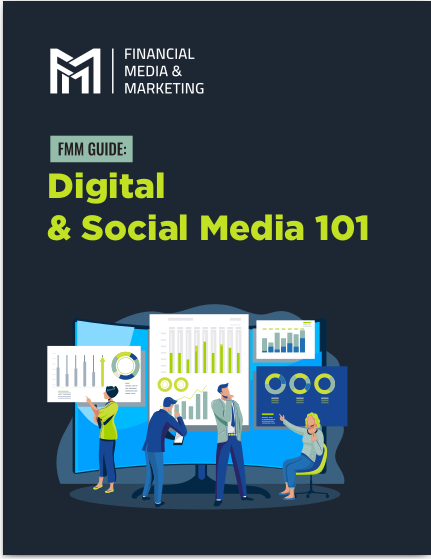Key Takeaways
-
Your clients rely on search engines to discover your services. If you’re not visible, you’re effectively invisible to them.
-
Improving online visibility doesn’t require an overhaul of everything—just a smart, intentional strategy tailored to your profession.
The Real Cost of Being Invisible in 2025
In 2025, not being findable on Google isn’t just inconvenient—it’s a liability. You could be the most qualified professional in your field, but if your name, services, and credentials aren’t indexed correctly or showcased effectively, you’re missing out on countless opportunities.
Whether you’re a consultant, attorney, architect, coach, or healthcare provider, clients begin their search for services online. If you’re not one of the first few names they see, your competitors get the call instead.
Why Google Visibility Matters More Than Ever
Search behavior has changed. Potential clients in 2025 no longer flip through directories or ask friends first—they Google. They ask questions. They check reviews. They look for credibility.
When your name doesn’t appear in local search, when your website isn’t optimized for your expertise, or when your professional profile is inconsistent across platforms, you’re telling Google—and your clients—that you’re not relevant.
Being found online establishes:
-
Credibility: Consistent information and updated content show that you are active and reputable.
-
Trust: When people see you on multiple platforms, they’re more likely to believe in your expertise.
-
Accessibility: Clients can contact you quickly, understand your offerings, and move forward.
Understanding the Search Engine Landscape
Search engines rank professionals based on a mix of authority, relevance, and user engagement. You don’t need to be a tech expert to understand what helps you rank—just clarity on the main components:
On-page SEO basics:
-
Use clear, specific keywords about your profession (e.g., “family law attorney in Denver”).
-
Update your site regularly with fresh, relevant content.
-
Structure your website with proper headings, readable paragraphs, and internal links.
Off-page SEO essentials:
-
Claim and update your Google Business Profile.
-
Collect and respond to client reviews.
-
Build citations in directories related to your profession.
Technical improvements:
-
Ensure your site loads in under 3 seconds.
-
Make it mobile-friendly.
-
Use SSL encryption to show your site is secure.
How to Audit Your Online Presence
Before you fix anything, you need to understand where you stand. A visibility audit doesn’t have to be complex. In fact, it’s something you can do in a single afternoon.
Start with a simple search:
-
Type your name and profession into Google.
-
Note which pages show up: website, LinkedIn, directories, articles, videos.
-
Check for outdated or missing information.
Review your website:
-
Does it clearly state what you do?
-
Is your contact information easy to find?
-
Are you linking to your social and professional profiles?
Evaluate your content:
-
Do you have blog posts, articles, or FAQs?
-
Are you demonstrating expertise in your field?
-
Is there a way for prospects to engage—like a consultation form or newsletter sign-up?
What You Can Fix Right Now
Even without hiring an SEO agency or developer, there are things you can do today to become more discoverable.
Optimize your Google Business Profile:
-
Use accurate categories that describe your professional services.
-
Add photos, operating hours, and a full description.
-
Keep your contact details consistent with your website and other platforms.
Improve your LinkedIn presence:
-
Use a professional headshot and banner.
-
Write a clear, compelling headline.
-
Use the featured section to highlight your top services or case studies.
Clean up your citations:
-
Ensure the same name, address, and phone number (NAP) is used across all listings.
-
Remove duplicate or outdated listings.
-
Focus on platforms specific to your profession.
Crafting a Content Strategy That Works
The easiest way to stay visible is to keep sharing what you know. Content shows your audience—and Google—that you’re active and credible.
What should you publish?
-
Short blog posts answering client questions.
-
Industry insights or commentary on current events.
-
Case overviews or success frameworks (without revealing sensitive info).
How often should you post?
-
Once a week is ideal, but even twice a month is enough to stay relevant.
-
Schedule content in advance so you don’t scramble to stay consistent.
Where should you post?
-
Your own website should be your main hub.
-
Repurpose posts to LinkedIn, newsletters, and professional forums.
Establishing Digital Authority in Your Field
Your clients need more than services—they need assurance that you’re an expert. Digital authority happens when your name keeps showing up in relevant, trusted places.
Ways to build authority:
-
Be featured on guest blogs or interviews.
-
Publish articles in trade journals or on Medium.
-
Host or speak at webinars in your niche.
Metrics that signal authority:
-
Increasing traffic to your website.
-
Mentions or backlinks from other trusted sites.
-
Engagement on your posts, such as shares or comments.
When to Invest in Professional Help
Eventually, visibility plateaus without advanced strategies. If you’ve done all you can solo and aren’t seeing results within 6–9 months, it may be time to bring in professionals.
Consider outside help for:
-
Full SEO audits and fixes
-
Google Ads or social campaigns
-
Video content creation or syndication
Costs vary, but think of it as a professional development expense—it pays off when clients find and trust you instantly.
Timeframes to Expect Results
Improving online visibility isn’t instant, but it follows predictable timelines:
-
0–3 months: Cleanup, audits, and initial optimizations
-
3–6 months: Content starts ranking; you may notice slight increases in inquiries
-
6–12 months: Sustainable presence develops; leads become more consistent
Staying consistent is more important than chasing quick wins. Google rewards longevity and accuracy.
Fix Visibility Gaps Before They Affect Your Bottom Line
Your professional visibility isn’t just about prestige—it’s about survival in a competitive market. Clients in 2025 are making fast decisions based on search results, perceived trust, and ease of contact. If you’re not showing up, you’re not even in the running.
By taking control of your online presence now—through audits, content, listings, and strategy—you position yourself for long-term success. Google can’t refer clients to someone it can’t find. Make sure you’re someone worth finding.










